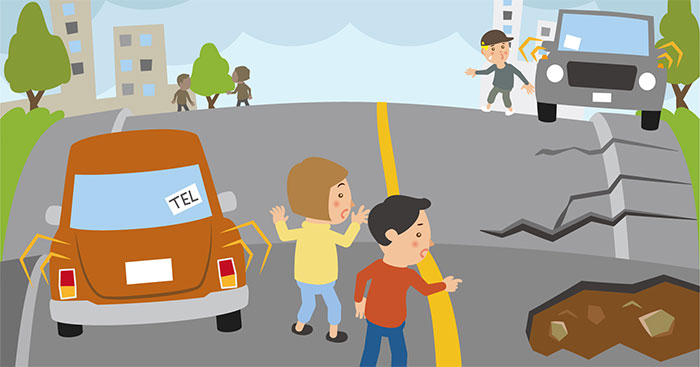Bạn đang xem bài viết Tiếng Anh 9 Unit 1: Lesson 2 Soạn Anh 9 i-Learn Smart World trang 8, 9, 10, 11 tại Thptlequydontranyenyenbai.edu.vn bạn có thể truy cập nhanh thông tin cần thiết tại phần mục lục bài viết phía dưới.
Tiếng Anh 9 Unit 1: Lesson 2 giúp các em học sinh lớp 9 trả lời các câu hỏi trang 8, 9, 10, 11 Tiếng Anh 9 sách i-Learn Smart World để chuẩn bị bài Unit 1: English in the World trước khi đến lớp.
Soạn Lesson 2 Unit 1 lớp 9 bám sát theo chương trình SGK i-Learn Smart World 9. Thông qua đó, giúp học sinh nhanh chóng nắm vững kiến thức để học tốt tiếng Anh 9. Đồng thời, cũng giúp thầy cô tham khảo để soạn giáo án Tiếng Anh 9 theo chương trình mới. Mời thầy cô và các em cùng theo dõi bài viết dưới đây của Thptlequydontranyenyenbai.edu.vn:
Let’s talk!
In pairs: Look at the picture. What is the woman doing? How can English help her on her trip?
(Theo cặp: Quan sát tranh. Người phụ nữ đang làm gì? Tiếng Anh có thể giúp cô ấy như thế nào trong chuyến đi?)

Gợi ý đáp án
– The woman in the picture appears to be traveling and consulting a map.
– English can be incredibly helpful for her trip in several ways:
+ Reading signs and directions: English is widely used in signage and directions in many countries, especially tourist destinations. Knowing English would enable her to understand signs for attractions, transportation, and other important information.
+ Communicating with locals: English is often a common language used for communication between people from different linguistic backgrounds. If she encounters locals who speak English, it would facilitate asking for help, seeking recommendations, or engaging in conversations about her travel plans.
+ Navigating transportation: English is commonly used in transportation hubs such as airports, train stations, and bus terminals. Understanding English would help her navigate schedules, ticketing processes, and announcements.
+ Reading maps and guidebooks: Many maps, guidebooks, and travel resources are available in English. Being able to understand English would allow her to effectively use these resources to plan her itinerary, find attractions, and navigate her way around unfamiliar places.
New words
a. Read the definitions, then fill in the blanks with the new words. Listen and repeat.
(Đọc các định nghĩa, sau đó điền vào chỗ trống với các từ mới đó. Nghe và lặp lại.)

Gợi ý đáp án
|
1. international |
2. opportunity |
3. content |
4. career |
|
5. overseas |
6. worldwide |
7. foreign |
8. essential |
b. In pairs: Use the new words to talk about how you can use English in your country and around the world.
(Theo cặp: Sử dụng các từ mới để nói về cách bạn có thể sử dụng tiếng Anh trong quốc gia của bạn và trên toàn thế giới.)

Gợi ý đáp án
A: Hey! Have you ever thought about how essential English is in our country and worldwide?
B: Absolutely! English is not just important locally but also internationally. For instance, in our city, we have a lot of international tourists who visit, so knowing English is vital for communication with them.
A: True! And even online, there’s so much content available in English. It opens up a lot of opportunities for learning and entertainment.
B: Definitely! Plus, when it comes to career prospects, English proficiency is often a requirement for many jobs, especially those with multinational companies.
A: Exactly! And if we ever want to travel overseas for work or leisure, English is the primary language spoken in many countries, making it easier to communicate and navigate.
B: Absolutely! English truly is a worldwide language. It’s incredible how it connects people from different countries and cultures.
A: Absolutely. Many people in our country recognize this and choose to study abroad to improve their English skills and gain international experience.
B: Right! So, if we want to succeed in a globalized world, mastering English is not just an option; it’s essential.
A: Couldn’t agree more. English opens up a world of opportunities, both locally and internationally.
B: Definitely! Let’s continue honing our English skills to thrive in this interconnected world.
Listening
a. Listen to two friends talking about learning English. Where are they?
(Nghe hai người bạn nói chuyện về việc học tiếng Anh? Họ đang ở đâu?)

Gợi ý đáp án
2 – at school
b. Now, listen and fill in the blanks.
(Bây giờ, nghe và điền vào chỗ trống.)

Gợi ý đáp án
|
1. language |
2. overseas |
3. studying |
|
4. worldwide |
5. content |
6. movie |
c. Read the Conversation Skill box, then listen and repeat.
(Đọc khung hội về kỹ năng hội thoại, sau đó nghe và lặp lại.)

d. Now, listen to the conversation again and circle the phrase that you hear.
(Bây giờ, nghe đoạn một thoại lại một lần nữa và khoanh vào cụm từ đó mà bạn nghe được.)
e. In pairs: Which of Linh’s and Duy’s reasons for learning English do you like the most? Why?
(Làm việc theo cặp: Các ý kiến của Linh và Duy, bạn thích cái nào nhất? Tại sao?)
Gợi ý đáp án
A: Both Linh’s and Duy’s reasons for learning English are valid and offer different perspectives on the benefits of learning the language. Linh emphasizes the practicality of English for academic purposes, such as studying abroad, while Duy focuses on the enjoyment of English media, such as music and movies. Personally, I find Linh’s reason for learning English to be particularly compelling. The ability to study abroad opens up numerous opportunities for personal and academic growth, exposure to diverse cultures, and the chance to broaden one’s horizons. Additionally, proficiency in English can facilitate communication and collaboration in various academic and professional settings globally.
B: For me, Duy’s reason for learning English is also important. Enjoying English-language media can be a fun and engaging way to improve language skills, and it demonstrates how language learning can be integrated into everyday activities. Furthermore, cultural immersion through media consumption can enhance understanding and appreciation of different cultures.
A: To be honest, both Linh’s and Duy’s reasons offer valuable insights into the multifaceted benefits of learning English, and the choice between them may depend on individual preferences and goals.
Grammar
a. Read about adverbial clauses/ phrases of reason, then fill in the blanks.
(Đọc về mệnh đề trạng từ/cụm từ chỉ lý do, sau đó điền vào chỗ trống)

Gợi ý đáp án
1 – because of
2 – As/ Since/ Because
b. Listen and check. Listen again and repeat.
(Nghe và kiểm tra. Nghe lại là nhắc lại.)
c. Fill in the blanks with as/since/because or because of.
(Điền vào các chỗ trống với as/ since/ because hoặc because of)

Gợi ý đáp án
|
1. because of |
2. As/ Since/ Because |
|
3. as/ since/ because |
4. as/ since/ because |
|
5. because of |
d. Use the prompts to write replies using as/since/because or because of.
(Sử dụng lời nhắc để viết câu trả lời bằng as/ since/ because hoặc because of.)

Gợi ý đáp án
2. We are very good at English because we read and listen to English content every day.
3. Yes, English helps you with international travel, because people speak it worldwide.
4. Because English is the language of overseas study, it is essential to be good at it.
5. I am learning English, since it will give me more career opportunities in the future.
e. In pairs: Talk about English using the prompts below.
(Theo cặp: Nói về tiếng Anh sử dụng các gợi ý dưới đây.)

Pronunciation
a ‘…I will..” is often contracted to “…I’ll…”. “…I’ll…” sounds like /ail/
( Cụm từ “I will” thường được rút gọn thành “I’ll”. “I’ll” được phát âm như /ail/.)

b. Listen to the words and focus on the underlined letters.
(Nghe các từ và tập trung vào các từ gạch chân.)

c. Listen and cross out the sentence that doesn’t follow the note in Task a.
(Nghe và gạch chân dưới câu không làm theo ghi chú ở phần a.)

Gợi ý đáp án
I’ll earn more money
d. Read the sentences with the sound changes noted in Task a. to a partner.
(Đọc các câu với biến âm được ghi chú ở câu a với bạn của mình.)
Practice
a. In pairs: Take turns telling your partner why you are learning English.
(Làm việc nhóm: Hai bạn lần lượt kể cho bạn của mình biết vì sao mình đang học Tiếng Anh.)

Gợi ý đáp án
A: Why do you want to learn English?
B: I’m learning English because I want to study abroad. As I want to study abroad I need to improve my skills to succeed academically in an international setting.
***
A: Why do you want to learn English?
B: I want to learn English because I want to watch English television. I improve my listening skills since I love watching English programs.
***
A: Why do you want to learn English?
B: I’m learning English because of my love for English music. Since I love English music, I’m going learn the lyrics.
***
A: Why do you want to learn English?
B: I’m learning English because I like international travel. I should learn more phrases as I’ll do more exercise.
***
A: Why do you want to learn English?
B: I’m learning English because I love to learn new things. Since I love to learn new thing, I’ll improve quickly.
b. Practice with your own ideas.
(Luyện tập với ý tưởng riêng của bạn)
Gợi ý đáp án
A: Why are you learning English?
B: I’m learning English because of my passion for connecting with people from around the world. Since I enjoy learning about different cultures and making new friends, I believe fluency in English will help me communicate effectively and build meaningful relationships across borders.
Speaking
a. In pairs: Discuss your top three reasons for learning English. Decide on the two most important reasons and write them in the table.
(Theo cặp: Thảo luận về ba lý do hàng đầu khiến bạn học tiếng Anh. Quyết định hai lý do quan trọng nhất và viết chúng vào bảng.)

Gợi ý đáp án
1. For career advancement opportunities
2. To communicate with people from diverse backgrounds
3. To access a wider range of information and resources
b. In pairs: Choose two study methods from Lesson 1 you think will explain your reasons for studying English. Join another pair and share your ideas.
(Theo cặp: Chọn hai phương pháp học từ Bài học 1 mà bạn nghĩ sẽ giải thích lý do bạn đang học tiếng Anh. Kết hợp với một cặp khác và chia sẻ ý kiến của bạn.)
Gợi ý đáp án
1. Watch television shows and movies in English: This method can help improve our English language skills, especially our listening comprehension and vocabulary. It’s also a fun way to learn about different cultures and idiomatic expressions.
2. Keep a notebook: This method allows us to actively engage with the language by writing down new vocabulary, grammar structures, and phrases we encounter. It helps reinforce our learning and serves as a reference for future study. By combining these two study methods, we can enhance our language skills while also immersing ourselves in English-speaking cultures.
Cảm ơn bạn đã xem bài viết Tiếng Anh 9 Unit 1: Lesson 2 Soạn Anh 9 i-Learn Smart World trang 8, 9, 10, 11 tại Thptlequydontranyenyenbai.edu.vn bạn có thể bình luận, xem thêm các bài viết liên quan ở phía dưới và mong rằng sẽ giúp ích cho bạn những thông tin thú vị.



